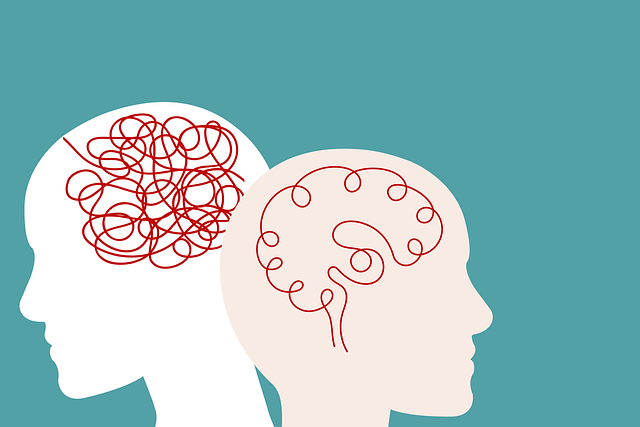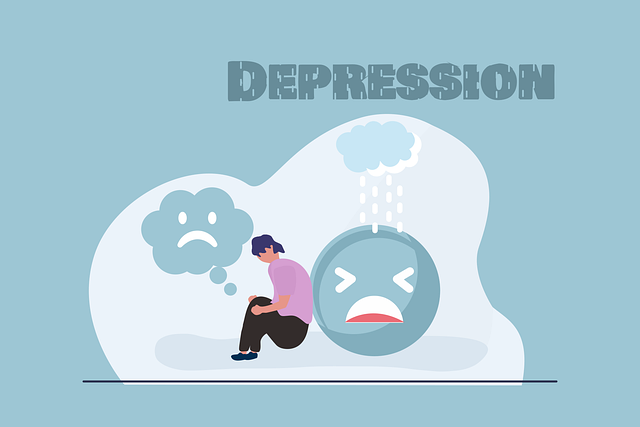Mental health apps, like Westminster Chronic Pain Therapy, offer holistic tools for managing chronic pain and improving well-being through evidence-based practices. These apps utilize AI and personalized feedback to cater to individual needs, providing accessible therapy beyond traditional sessions. Effective design focuses on user experience, incorporating crisis guidance, mindfulness exercises, and mental health awareness. Marketing strategies leverage digital platforms and SEO to reach demographics in need, partnering with healthcare providers for comprehensive mental wellness support tailored to Westminster's unique challenges.
In today’s digital age, mental wellness app development offers transformative potential, particularly in managing conditions like chronic pain. This article delves into a comprehensive overview of mental health and chronic pain, highlighting their impact on daily life. We explore the pivotal role technology plays in providing support, focusing on Westminster Chronic Pain Therapy apps. Through expert design strategies, we uncover effective features and user experience considerations tailored for such apps. Additionally, marketing and distribution tactics are discussed to ensure these valuable resources reach those who need them most.
- Understanding Mental Health and Chronic Pain: A Comprehensive Overview
- The Role of Technology in Mental Wellness Support
- Designing Effective Features for a Westminster Chronic Pain Therapy App
- User Experience (UX) Considerations for Targeted App Development
- Marketing and Distribution Strategies for Mental Wellness Apps
Understanding Mental Health and Chronic Pain: A Comprehensive Overview

Mental health and chronic pain are deeply interconnected issues that demand comprehensive understanding and effective coping strategies. Chronic pain, often persistent and debilitating, can significantly impact an individual’s mental wellness, leading to heightened stress levels, anxiety, and depression. According to Westminster Chronic Pain Therapy, this complex relationship necessitates a holistic approach to treatment, addressing both the physical and psychological aspects of pain management.
The development of mental wellness apps plays a pivotal role in empowering individuals to take control of their well-being. By incorporating evidence-based techniques, these applications offer accessible tools for coping skills development, anxiety relief, and self-care practices. Through interactive features, users can learn to navigate stress, manage pain symptoms, and cultivate resilience, ultimately enhancing their overall mental health and quality of life.
The Role of Technology in Mental Wellness Support

Technology plays a pivotal role in modern mental wellness support, offering innovative solutions to address various psychological and emotional challenges. Apps designed for this purpose provide accessible and often personalized resources to enhance well-being. From mindfulness exercises and meditation guides to tools for tracking mood and managing stress, these digital companions are becoming increasingly sophisticated, incorporating artificial intelligence and machine learning algorithms to adapt to individual user needs.
In the context of chronic pain management, for instance, a Westminster Chronic Pain Therapy app could utilize technology to teach conflict resolution techniques and resilience-building strategies. Such apps offer discreet support, allowing users to engage in therapeutic activities whenever and wherever needed. This accessibility is particularly beneficial for those who may face barriers to traditional therapy, ensuring that mental wellness becomes an integral part of daily life and not just a fleeting moment in a treatment session.
Designing Effective Features for a Westminster Chronic Pain Therapy App

Designing effective features for a Westminster Chronic Pain Therapy app requires a nuanced approach that caters to the unique needs of individuals managing long-term pain. Incorporating evidence-based practices such as cognitive behavioral therapy, relaxation techniques, and mindfulness exercises can significantly enhance user engagement and outcomes. For instance, integrating daily check-ins with personalized feedback mechanisms encourages users to track their progress and adjust self-care routines accordingly.
Moreover, including features that support burnout prevention strategies for healthcare providers can foster a more holistic therapeutic experience. Healthcare provider cultural competency training modules, for example, can ensure that the app caters to diverse user populations, while encouraging self-care practices among caregivers can promote sustainable wellness. By seamlessly integrating these elements, the app can become a comprehensive resource for both patients and healthcare professionals navigating the challenges of Westminster Chronic Pain Therapy.
User Experience (UX) Considerations for Targeted App Development

When developing a mental wellness app, such as one focused on Westminster Chronic Pain Therapy, User Experience (UX) considerations are paramount. The app’s interface should be intuitive and accessible, catering to users’ emotional states and varying levels of comfort with technology. Features like simple navigation, clear call-to-actions, and calming visual aesthetics can significantly enhance user engagement and satisfaction.
Incorporating Crisis Intervention Guidance within the app is crucial for addressing sudden mental health crises. This could include resources for stress management techniques, mindfulness exercises, or direct links to professional help. Mental Health Awareness should be woven throughout the design, ensuring users feel supported and not isolated. By prioritizing these UX elements, the app can become a reliable tool for managing chronic pain and promoting overall well-being.
Marketing and Distribution Strategies for Mental Wellness Apps

Marketing and distribution strategies for mental wellness apps are crucial to their success and reach. One effective approach is to leverage digital marketing channels, such as social media platforms and search engine optimization (SEO), to target specific demographics, including those dealing with chronic pain in Westminster. Tailoring content around relevant keywords like ‘Westminster Chronic Pain Therapy’ can improve discoverability and attract users seeking targeted solutions.
Additionally, partnering with established healthcare providers and trauma support services can expand the app’s distribution network. Incorporating features that address anxiety relief and compassion cultivation practices within the app’s design and functionality can further enhance its appeal to a wide range of users, ensuring a comprehensive approach to mental wellness.
The development of mental wellness apps, particularly those focused on managing Westminster Chronic Pain Therapy, presents a promising avenue to enhance access to care. By combining technology with evidence-based practices, these applications can significantly improve user experiences and outcomes. As we’ve explored in this article, understanding the target audience’s needs, designing intuitive interfaces, and implementing effective therapeutic features are crucial steps in creating impactful mental health solutions. With careful consideration of UX and strategic marketing, mental wellness apps have the potential to reach a wide audience, offer personalized support, and contribute to a more resilient and healthy community.














